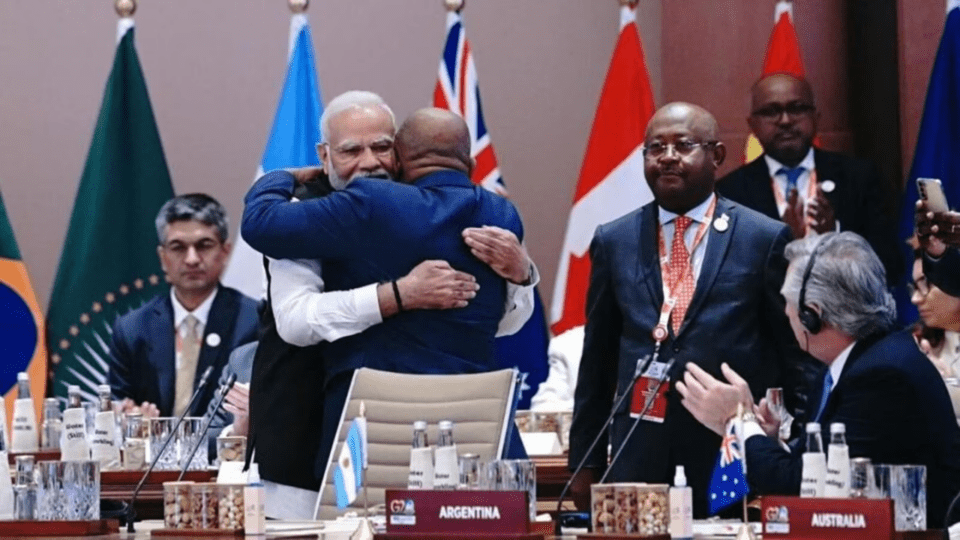The first day of the G20 summit started with a significant announcement. Prime Minister Narendra Modi, during a brief televised inaugural session, introduced a groundbreaking initiative by announcing the admission of the 55-member African bloc as the first new member of the G20 since its inception in 1999, a period marked by a series of financial crises.
Also Read: PM Modi’s 15 Bilateral Meetings at G20
On Saturday, the African Union officially became a permanent member of the G20 as leaders from the world’s largest economies gathered in New Delhi for a summit primarily focused on addressing pressing global challenges, all against the backdrop of the Ukraine crisis.
“In line with the ethos of ‘sabka saath’ (with everyone), India proactively proposed granting permanent membership to the African Union within the G20. I believe we all agree on this proposal,” Modi articulated in Hindi.
Following this affirmative statement, Modi ceremoniously used a gavel, striking it three times to symbolize the African Union’s entry into this influential consortium. He added, “Before we delve into our agenda, I extend an invitation to the African Union President to take up his role as a permanent member.”
S Jaishankar, the Minister of External Affairs, warmly escorted the current African Union Chairperson, Comoros President Azali Assoumani, to his designated seat at the conference table. An embrace between Modi and Assoumani set the tone for the commencement of closed-door deliberations among the G20 leaders.
The incorporation of the African Union into the G20, established in 2002, has been formally included in the draft of the leaders’ declaration currently under negotiation within the G20 member states. The African Union is poised to hold a status analogous to the 27-member European Union (EU), the sole regional bloc enjoying full-fledged G20 membership.
It is noteworthy that the inclusion of the African Union is not expected to prompt a change in the nomenclature of the G20, as confirmed by diplomats representing G20 member states.
The decision to integrate the African Union into the G20 was not a spur-of-the-moment one but rather a meticulously considered step. In June, Prime Minister Modi corresponded with fellow leaders of G20 nations, advocating for the African Union’s elevation to full-fledged membership within the coalition. This proposition garnered support from significant stakeholders, including key EU members, China, and Russia, albeit for differing motivations.
Among the proponents of this move were not only EU nations but also influential G7 member Japan, all sharing a common objective of affording African countries, constituents of the Global South, a more pronounced voice within the global governance framework. China, given its substantial investments in Africa through the Belt and Road Initiative, opted not to oppose the initiative to avoid appearing confrontational. Meanwhile, Russia sought to cultivate stronger ties with African states as a countermeasure against its isolation by Western nations amid the Ukraine conflict.
India, during its G20 presidency, has strategically positioned itself as the “voice of the Global South.” The endeavor to secure a place for the African Union within the consortium of the world’s most affluent economies is emblematic of India’s commitment to these aspirations and its active role on the global stage.
As an independent media platform, we do not take advertisements from governments and corporate houses. It is you, our readers, who have supported us on our journey to do honest and unbiased journalism. Please contribute, so that we can continue to do the same in future.

